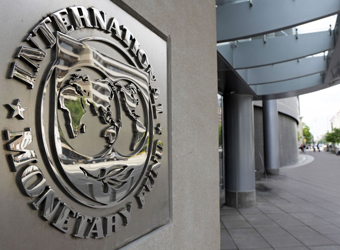The International Monetary Fund is slightly more optimistic about global growth yet remained clearly concerned about risks.
The world economy’s acceleration so far this year has been stronger than earlier estimates, with an upswing under way across nearly all the world’s major economies, the IMF said ahead of IMF-World Bank Annual Meetings in Washington this week.
However, the IMF said the increasingly momentum behind anti-globalisation movements is one of the main threats to the recovering global economy, putting productivity and living standards at risk.
“A closer look suggests that the global recovery may not be sustainable” and neither policy makers nor markets should be “lulled into complacency,” warned Maurice Obstfeld, the IMF’s chief economist, in a note accompanying the forecast released on Tuesday.
The IMF’s new forecast for global growth this year and next was boosted by one-tenth of a percentage point each year, compared with the organization’s views in July. Roughly 75% of the world’s economy is sharing in the acceleration, a broader recovery than any in a decade, the agency said.
Global growth is projected to rise to 3.6 percent in 2017 and 3.7 percent in 2018, marking an improvement of 0.1 percentage points on the April forecast from the IMF. The outlook for emerging markets was also very positive, with expectations for a 4.6 percent acceleration in growth in 2017, and 4.9 percent in 2018, largely driven by China’s economy.
The IMF urged China’s economic leaders to accelerate their efforts to curb the expansion of credit. If further action is not taken, there is a greater probability of “a sharp growth slowdown in China” that would have important spillover effects in other countries.
However, poorer than expected performance in the UK economy for the first half of 2017 led to a 0.3 percent downgrading of UK growth, to 1.7 percent for the current year and 1.5 percent in 2018. This fall was due to lower levels of private consumption, caused by a weaker pound squeezing household incomes.
Germany and Spain received predictions of 2.0 percent and 3.1 percent growth respectively, with France lower at 1.6 percent, rising to 1.8 percent in 2018. Italy’s growth was expected to soften from 1.5 percent in 2017 to 1.1 percent in 2018.
The latest forecasts for future economic health are based on a “benign global financial environment and a recovery in advanced economies,” which are driving a strengthening in economic global activity, the note showed.



